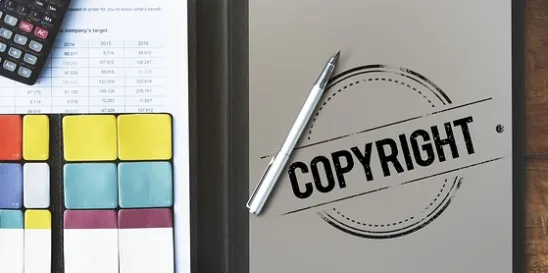2023 has been a watershed year for AI with its entry into the broader public consciousness. AI has been front and center in the legal space as well, as this blog has detailed here and here. Now, the U.S. Copyright Office (USCO) is seeking public comments on the various legal, technical and policy issues raised by AI systems. The USCO is doing this with an eye toward possible changes or clarifications on what is copyrightable in this realm and to fulfill its functions of advising Congress and serving as a public resource on copyright law matters. In this post, we will provide more information about this USCO initiative and some preliminary thoughts on its implications for the copyrightability of AI-generated works in the future.
The USCO’s AI Initiative launched in early 2023, and has included public listening sessions, educational webinars, engagement with stakeholders, and the publication of a registration guidance statement reiterating the “principle that copyright protection in the United States requires human authorship.” As the Notice further highlights, the USCO has been engaged over the years on questions involving machine learning and copyright, and, in fact, has issued decisions recently declining to register an artwork generated by AI and parts of a graphic novel that were created using a generative AI system.
For interested stakeholders, this comment period presents an opportunity to help shape this rapidly evolving area of the law. Indeed, the USCO is soliciting input in four main areas:
- the use of copyrighted works to train AI models;
- the copyrightability of material generated using AI systems;
- potential liability for infringing works generated using AI system; and
- the treatment of generative AI outputs that imitate the identity or style of human artists.”
The Notice further sets forth a lengthy list of questions on which it seeks stakeholders’ opinions – including the training of AI systems, transparency and recordkeeping requirements, copyrightability, infringement, and labeling or identification of AI-generated portions of works.
Perhaps the most significant aspect of the Notice is how it frames the copyrightability question on “where and how to draw the line between human creation and AI-generated content.” While the USCO states that the “law is clear that copyright protection in the United States is limited to works of human authorship,” it questions whether there are “circumstances where a human’s use of a generative AI system could involve sufficient control over the technology, such as through the selection of training materials and multiple iterations of instructions (“prompts”), to result in output that is human-authored?” (Emphasis added.) There are multiple questions in the Notice dealing with the nature of the materials to train AI Systems (e.g., the use of copyright versus non-copyrighted works, or the use of licensed works) and the implications of the fair use doctrine in this context. See Questions 6-14 of Notice.
Based on the tenor of the questions in the Notice, it is conceivable that the USCO will deliver a clearer roadmap of the circumstances in which AI-generated work can be copyrighted. While the element of human authorship will surely remain essential to copyrightability, the form of that human authorship may look different in the AI context compared to traditional art forms benefiting from copyright protection. But there is hope that this process will allow the USCO to better articulate what “sufficient control over the technology” means, so that creators can ensure they are using AI technology in a way that still allows them to obtain copyright protection.
The Notice also recognizes the inherent issues involved with the use of databases containing copyrighted material to train AI models. Indeed, it sets forth a host of relevant questions, including whether consent of copyright owners must be given for their works to be used to train AI models, and whether an opt out process or collective licensing scheme is feasible or desirable. Although these issues are likely to play out in the courts in coming years, it will be interesting to see what, if any, guidance the USCO may offer on this topic.
Finally, the Notice includes a “Glossary of Key Terms” section defining various terms, including “Artificial Intelligence,” “AI Model,” “Generative AI,” “Machine Learning,” and “Training Datasets.” While mundane, many of these terms do not have a generally accepted meaning, and the USCO is a credible source. Thus, these definitions may end up being relied upon by courts and litigants in the future. That said, these definitions will also likely evolve based on the comments and information collected in response to the Notice, and technological developments in the future.
For those interested, written comments are due by October 18, 2023. We will track further developments in this space.




 />i
/>i

